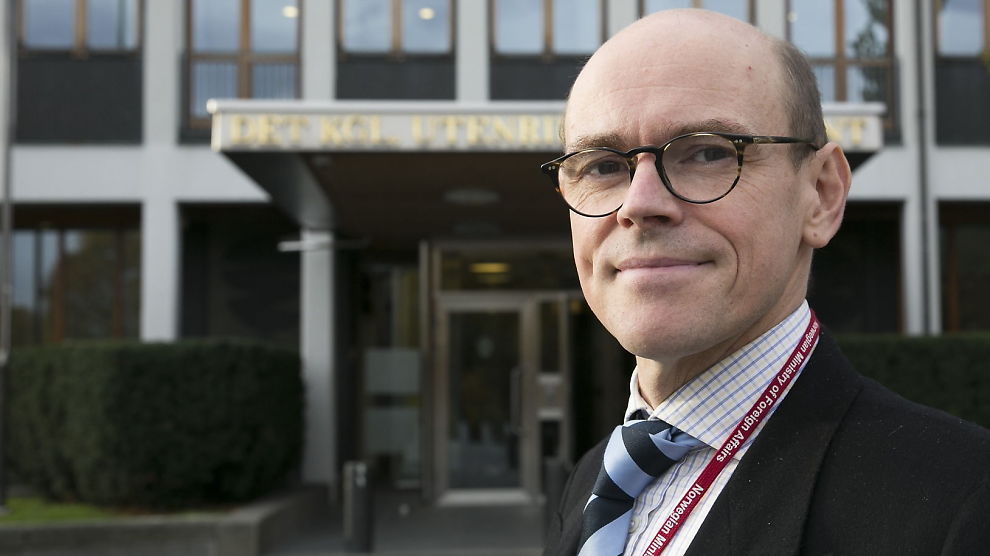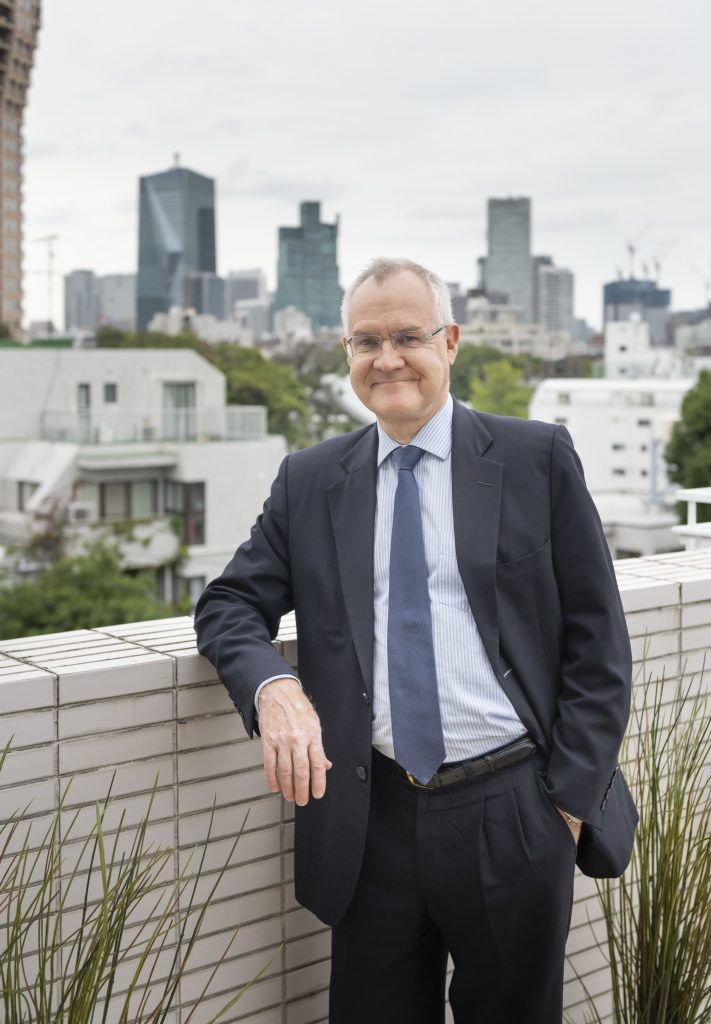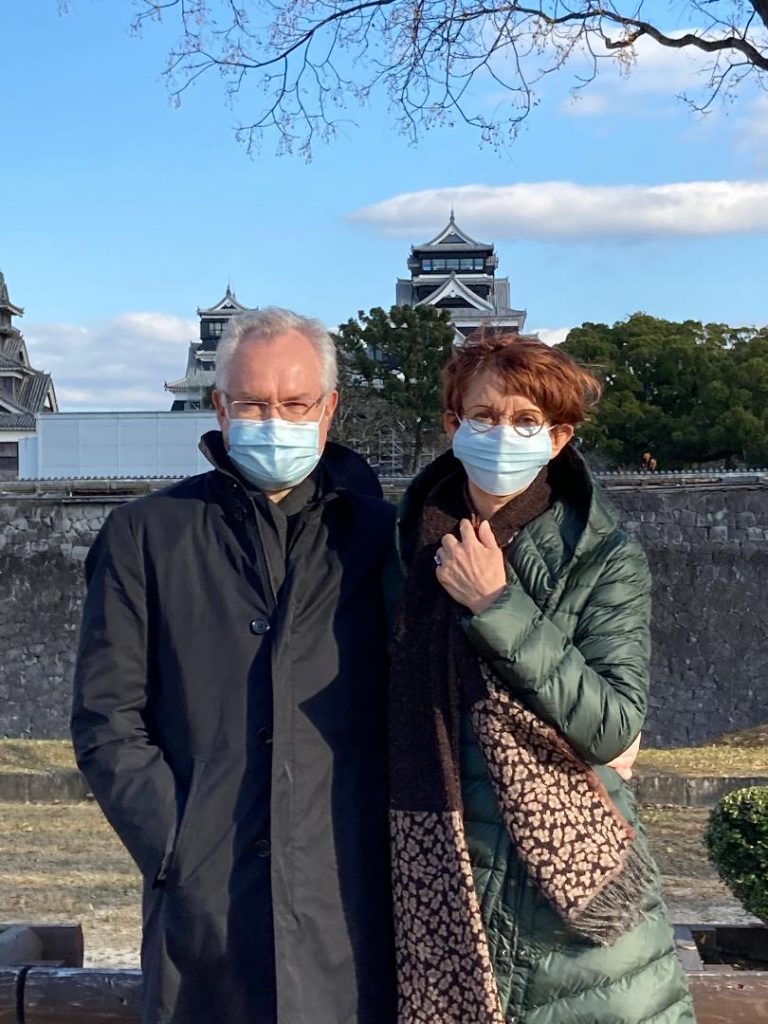…but old friends, Serbia and its beauties and delicacies remain in our hearts!
Diplomacy & Commerce magazine, in each issue, among other things, represents the diplomatic corps, as well as everything that happens in the diplomatic community in Serbia. Now we also want to show our readers where the former ambassadors or heads of international institutions work and what they do. In this issue, we present the ambassadors of two countries or entities: Norway and Finland. We asked them what they did after leaving Belgrade, what they miss the most from Serbia and how much the pandemic has changed diplomacy and the daily life of a diplomat or a manager.

H.E. Arne Sannes Bjørnstad, former Ambassador of Norway, today Norway’s Special Representative for the Western Balkans: I am still connected to Serbia!
What have you been doing since you left Belgrade?
I left Belgrade to become Norway’s Special Representative for the Western Balkans. The idea was that I would travel to the region every month. I did for a while, but then the pandemic suddenly made it very difficult to travel. By the end of March last year, I joined the crisis management team of the Ministry of Health.
Most of my working hours I since last summer work with vaccine supply and sharing. Since January I’m in charge of a group of lawyers assisting “Team Europe” (the European Commission, the EU Members States and its EFTA partners) with legal issues and contracts related to vaccine sharing with COVAX or individual countries outside “Team Europe” as well as some transfers of vaccines within “Team Europe”. This is completely different from anything I’ve done before but very rewarding. Besides, coming from Norway, standing outside the EU, it is a quite unique opportunity to work within the EU system.
I’m still, however, Special Representative for the Western Balkans. Due to travel restrictions and now also my work with vaccines I have just been back even a handful of times since the pandemic began. I regret this very much. It is difficult to follow developments in the region and to be useful to our friends in the region without being present. We have very good ambassadors, so I am not too concerned, but it is frustrating. It is on the other side rewarding to work with EU Special Representative Miroslav Lajčak, who knows the region very well and is an excellent diplomat, although of course from the sidelines I have to follow his important, but very difficult task of bringing the Belgrade- Priština dialogue forward.
What do you miss the most about Serbia?
The people. All the friends. Being in Serbia gives me the feeling of really being at the centre of Europe with its different cultural influences. It would be easy to explain this by its history, or its position on the crossroad between eastern and western Europe, between the old Habsburg and Ottoman empires, but it doesn’t explain it all.
“The kind of open discussions that is perhaps the most important tool we have, and especially for diplomats serving abroad, cannot be adequately replaced by a videoconference or a phone”
But I have to admit that I also miss Belgrade. It is a very special city. The changes I saw while living there were impressive, but it just continues. While the cityscape change and you can see an improvement in living standards and the choices you have in how to spend your money and your time, it still remains the same unique Belgrade. It must be the people of Belgrade and Serbia that makes it into this great city
But I have to admit: I also miss Serbian food, rakija and wines.
How much have diplomacy and the everyday life of a diplomat changed during the pandemic?
Most of us experienced both a change in what we were doing and how we were doing it. Suddenly a part of our ordinary work disappeared because of all the restrictions put in place to slow the spread of the virus and keep us safe. Just imagine how much work had been laid down in planning different cultural or trade events, high-level visits and so on. Consular work must have changed a lot too, with people having problems getting home or needing medical care, and later due to the decrease in international travel.
I suppose the diplomats on a foreign posting experienced a bigger change than I did. The diplomatic life, so to speak, with receptions, lunches, briefings etc just disappeared. Some were isolated from their home country and their families. for months.
Being based back at HQ, the major changes were extensive use of the home office – which I quite like – and travel restrictions. One thing is for sure: virtual meetings cannot replace physical meetings. That being said, some larger meetings I find more efficient when we all sit in front of our screens or listen in on a phone. The kind of open discussions that is perhaps the most important tool we have, and especially for diplomats serving abroad, cannot be adequately replaced by a videoconference or a phone. One problem is the security of communication, but it is more than that. You need to see and hear people in person. A screen and earphones are poor substitutes.

H.E. Pekka Orpana, Former Ambassador of Finland to Serbia, current Ambassador of Finland to Japan: Everyday Belgrade life and skiing in Kopaonik are my favourites!
What have you been doing since you left Belgrade?
When I returned from Belgrade to Helsinki about six years ago I served in my Ministry for Foreign Affairs as Ambassador for External Energy relations and Climate change for three years. The focus of my work was on energy-related issues with geopolitical implications and in the energy transition process as part of climate policies.
Climate change and energy transition are issues that every diplomat and every citizen should be well aware of as they will have a huge impact on our lives in the years to come. It was very motivating to work on those issues and to try to give my small contribution to ensure a better life for future generations.
I was appointed three years ago in summer 2018 as Ambassador to Japan. Half of the time I have been in Tokyo the Covid19 pandemic has been on which has affected the patterns of the work of the Embassy. Before the start of the pandemic, we celebrated 2019 the 100th Anniversary of diplomatic relations between Finland and Japan with huge success. We had an incredible amount of cultural events, high-level visits and business-related activities.
It has been quite astonishing to see how well Finland is known and liked by many Japanese. We are very famous here for instance for Moomin Characters, music, design, sauna and northern lights.
Japan is still the third biggest economy in the world with huge opportunities for Finnish companies and, of course, the importance of the region has been growing also politically particularly because of the rise of China and the implications and increasing rivalry related to that.
What do you miss the most about Serbia?
Serbia was the seventh of my eight postings in different countries as a diplomat. Of some of them, I can say, that they will always have a warm place in my heart. Serbia is one of them. I truly miss Serbia with my wife Paula. It is difficult to define a single thing which we miss most because in Serbia we just felt really at home and happy. We enjoyed our everyday life in Belgrade, which is absolutely a wonderful and vivid town with excellent food and culture, and our journeys around beautiful Serbia including skiing in Kopaonik.

During my time Serbia was also a particularly rewarding place to work as Serbia entered the negotiations to join the EU and also Kosovo dialogue moved forward. The positive mood encouraged also a lot of new business activities.
But at the end of the day, where ever you are, the most important thing for your happiness is how the people are around you and how they treat you. In Serbia, people are the best! Yes, the answer is that I miss most the friendship and hospitality of our friends in Serbia and Serbian people in general.
How much have diplomacy and the everyday life of a diplomat changed during the pandemic?
The pandemic has had a dramatic change in diplomatic work and our everyday life as diplomats. The very essence of being a diplomat is to connect with people and that has been very difficult for the past one and a half years.
“Finland is known and liked by many Japanese: for instance for Moomin Characters, music, design, sauna and northern lights”
In Japan, our work at the Embassy normally turns around a very active schedule of high-level visits with business and cultural delegations and all that was postponed because of the heavy travel restrictions. We have been able to compensate many activities with online events and visits, but they can never fully replace physical human to human contacts.
The good thing is that we have learned new online tools which will complement our work once we come back to normal, or rather back to new normal as it is called.